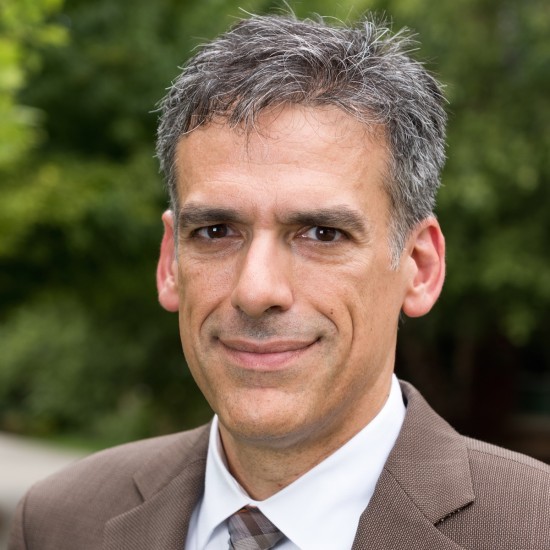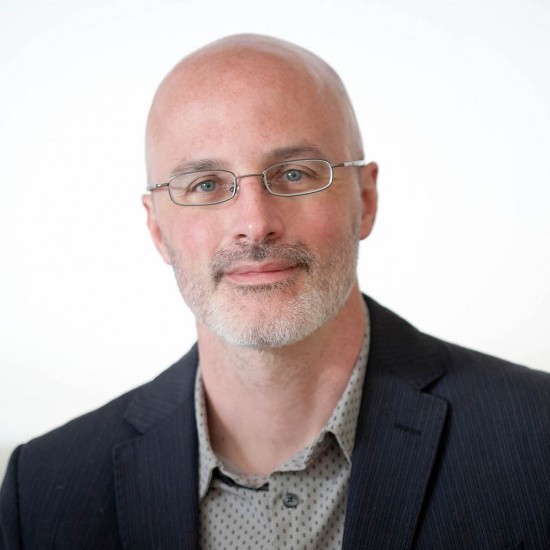2016 TREE Awards Announced

Two outstanding Cottrell Scholars have been named the 2016 recipients of RCSA’s TREE Award (Transformational Research and Excellence in Education) intended to recognize and advance truly outstanding research and education.
The winners are Rigoberto Hernandez, professor of chemistry, Georgia Tech, and Vincent Rotello, professor of chemistry, University of Massachusetts, Amherst.
They were selected by a committee of senior Cottrell Scholars and members of the RCSA scientific staff, with final selection approved by RCSA President Robert Shelton and the foundation’s Board of Directors.

Rigoberto Hernandez
Hernandez’s research area is broadly classified as the theoretical and computational chemistry of systems far from equilibrium. “We study the interplay between molecular motions —such as reactions or rearrangements— and changes in their environments,” he said. These are processes occurring at lightening speeds beginning at the atomic or molecular scale. Hernandez and his colleagues are working to develop better computer models and predictive programs. Ultimately his work may help to speed the development of new substances and better explain existing processes. Hernandez’s research involves questions pertaining to the diffusion of mesogens – substances that induce a liquid crystal phase -- in colloidal suspensions and liquid crystals. He also investigates the transport and control of adsorbates on a surface, the binding dynamics of proteins, the role of molecular reactions in nonequilibrium air and the dynamics of protein folding and rearrangement.
Currently Hernandez and his colleagues are working on one of the grand challenges facing theoretical and computational chemists: determining the correct structural and dynamical description of heterogeneous chemical systems at multiple length scales – from the molecular to the classical scale; i.e., meters -- simultaneously. Much of this work is being done through Center for Sustainable Nanotechnology, a multi-institutional partnership devoted to investigating the fundamental molecular mechanisms by which nanoparticles interact with biological systems.
“We are developing dynamically consistent algorithms to address these issues in the context of nanoparticles that are benign by design,” Hernandez said. “The TREE Award provides flexible funds and a useful spotlight for us to tackle such multiscale problems more generally, without the encumbrance of a specific program.”
Hernandez is also a tireless and passionate messenger for the joys and importance of chemistry and scientific research, and a major advocate for diversity in the scientific community. Among many other projects, he directs the Open Chemistry Collaborative in Diversity Equity (OXIDE), which seeks to improve communication between chemistry department chairs and the social science community. In 2011, 2013 and 2015 he organized National Diversity Equity Workshops for chairs and thought leaders of major research-active chemistry departments and experts from the social and behavioral sciences.
“We were able to identify diversity inequities that can be addressed by department-wide initiatives, to suggest and design such initiatives, to assess their effectiveness, and to share these effective practices among the chairs,” Hernandez said of the workshops.
Hernandez is currently a member of the American Chemical Society’s Board of Directors.
“It is such an honor to be able to celebrate Rigoberto’s teacher-scholar career with the TREE award. Not only he is a highly skilled computational chemist; he is also a wonderful role model for underrepresented groups in STEM disciplines. The combination of great science and outreach activities of high national impact made Rigoberto a very strong candidate for TREE,” RCSA Senior Program Director Silvia Ronco noted.

Vincent Rotello
Vincent Rotello has a Google Scholar h-index of 81, putting him in the top few percent of research chemists worldwide. Rotello’s 20 years of independent research includes supramolecular chemistry, nanobiology and biomaterials.
“Vince is the ultimate teacher-scholar,” Ronco said. “His research accomplishments are completely off the chart! His creative chemical approaches will benefit society in a number of positive ways. In addition, he is a passionate teacher who engages undergraduate and graduate students through mentoring, interactive methods and multidisciplinary approaches.”
“Our research focuses on the area of supramolecular chemistry,” Rotello said. “Especially the study and application of non-covalent interactions, which include hydrogen bonding, aromatic stacking and other electrostatic attractions and repulsions.”
He and his associates are currently employing these concepts of molecular recognition to explore a wide range of important questions in areas of biology to materials chemistry. In particular, he has done what colleagues describe as “breakthrough work” on bacterial sensing with nanotechnology, demonstrating that chemical tuning of nanoparticle surfaces influences bound protein function.
Professor Catherine J. Murphy, University of Illinois, calls Rotello’s work “astoundingly creative. He has done a lot of experiments I wish I’d thought of.” She adds that he has “stimulated many useful ways of thinking about nanoparticle chemistry.”
Rotello is generally acknowledged as a world leader in the use of gold nanoparticles for biological applications. His recent work has demonstrated the use of nanoparticle-fluorescent protein sensors for rapidly determining drug mechanisms (Nature Nano, 2015), with implications for development of new anti-cancer therapies. Most recently, his group developed a new strategy for doing synthetic chemistry inside of cells (Nature Chem, 2015)—reactions cells can’t do themselves, providing a new way to activate drugs at tumor sites.
As an educator Rotello has been a champion of undergraduate research and was among those instrumental in restructuring UM Amherst’s graduate program to enhance multidisciplinary learning. Currently he is working on a plan to provide career mentoring for students, drawing on his extensive network of alumni. This project highlights the life-long relationship between RCSA and Cottrell scholars, helping to identify important problems and having the networking needed to solve them.
Rotello is editor-in-chief of Bioconjugate Chemistry.
The TREE Award, which comes with a $25,000 prize, is highlighted in two venues: Awardees are asked to give a plenary talk at the Cottrell Scholar Conference, and a session or reception is organized at either an American Chemical Society or APS national meeting in honor of the awardee.
Outstanding candidates are admitted to the ranks of Cottrell Scholars through a stringent peer-review process based on their innovative research proposals and education programs. As Scholars rise to academic leadership roles, several new levels of competitive funding, including the TREE Award, are being made available to assist them. MORE
Questions may be addressed to RCSA Program Director Silvia Ronco (sronco@rescorp.org)






